
IN 1922 BIRD collector William McLennan was exploring the country outside Coen, on Queensland’s Cape York Peninsula, when he stumbled upon a vast grassy flat populated with thousands of termite mounds. Nearly every conical mound showed signs that the golden-shouldered parrot used it as a nesting site. Fast forward 100 years and the number of these stunning parrots has dwindled close to extinction, as have numbers of many of the peninsula’s other grassland bird species, which travelled together in great flocks, filling the sky. Although much of the region might look ‘undeveloped’, pastoralism has significantly changed the ecosystem and caused the unravelling of this once vast bird community. Along with the parrot, that community included the buff-breasted button-quail, which was last sighted in the year William penned his field notes about the grassy plains.
The golden-shouldered parrot, also known as the ant-bed parrot, nests in burrows inside termite mounds. Flitting to and from its nest, the bright plumage of the golden-shouldered parrot is a flash of colour against the muted tones of the termite mounds and grassy plains. Its unusual nesting location provides a stable temperature and humidity for developing eggs and chicks – and offers protection from fires. The dwelling also comes with domestic help from the antbed parrot moth, which eats the nestlings’ droppings, keeping the nest clean. This unusual moth is entirely dependent on the parrots’ nests; its fate hangs on the fortunes of the bird.
This story is from the {{IssueName}} edition of {{MagazineName}}.
Start your 7-day Magzter GOLD free trial to access thousands of curated premium stories, and 9,000+ magazines and newspapers.
Already a subscriber ? Sign In
This story is from the {{IssueName}} edition of {{MagazineName}}.
Start your 7-day Magzter GOLD free trial to access thousands of curated premium stories, and 9,000+ magazines and newspapers.
Already a subscriber? Sign In

SULAWESI SENSATIONS
There are worlds within worlds and marvels untold waiting to be experienced on Indonesia's remote islands.
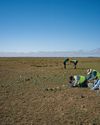
SEARCHING FOR AUSSIE DINOSAURS
Our understanding of where to find ancient life in Australia has been turned on its head by a new appreciation of the country's geology. Now the world is looking to our vast outback as the latest hotspot to locate fossils.

THE HARDEST NIGHT
The first Australian ascent of Mt Everest in 1984 is one of the great feats of mountaineering. Climbed by a small team semi-alpine style, with no bottled oxygen, via the Great (Norton) Couloir, it remains unrepeated 40 years later.
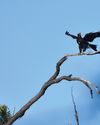
WEDGE-TAILED WONDER
The chance discovery of an eagle nest leads to an extended vigil observing normally hidden behaviours of one of nature's supreme winged marvels.
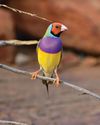
BURDENED BY BEAUTY
Northern Australia's Gouldian finch survives in huge numbers in cages around the world, but its wild population continues to struggle.
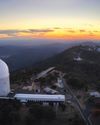
A TELESCOPE FOR A GOLDEN AGE
After a stellar 50 years as one of the country's major scientific assets, the AAT continues to play a major role in keeping Australian astronomy on the world stage.
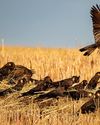
COCKY WHISPERING AT COOMALLO CREEK
This patch of remnant bush on the edge of the West Australian wheatbelt is a place loved by one of Australia's rarest bird species and the man who has studied the site for more than 50 years.

A PIONEERING PAIR
Louisa Atkinson and her mother, Charlotte, were among Australia's earliest authors, and pioneers in women's rights.

THE LONGEST WALK
Lucy Barnard is walking from Argentina to Alaska -the length of the Americas - on an extraordinary journey of endurance and adventure.
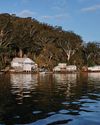
SECLUDED, BUT NOT ALONE
In an era of heightened social isolation, where many of us lead lonely lives, Dangar Island offers the chance to be part of a supportive, connected community.